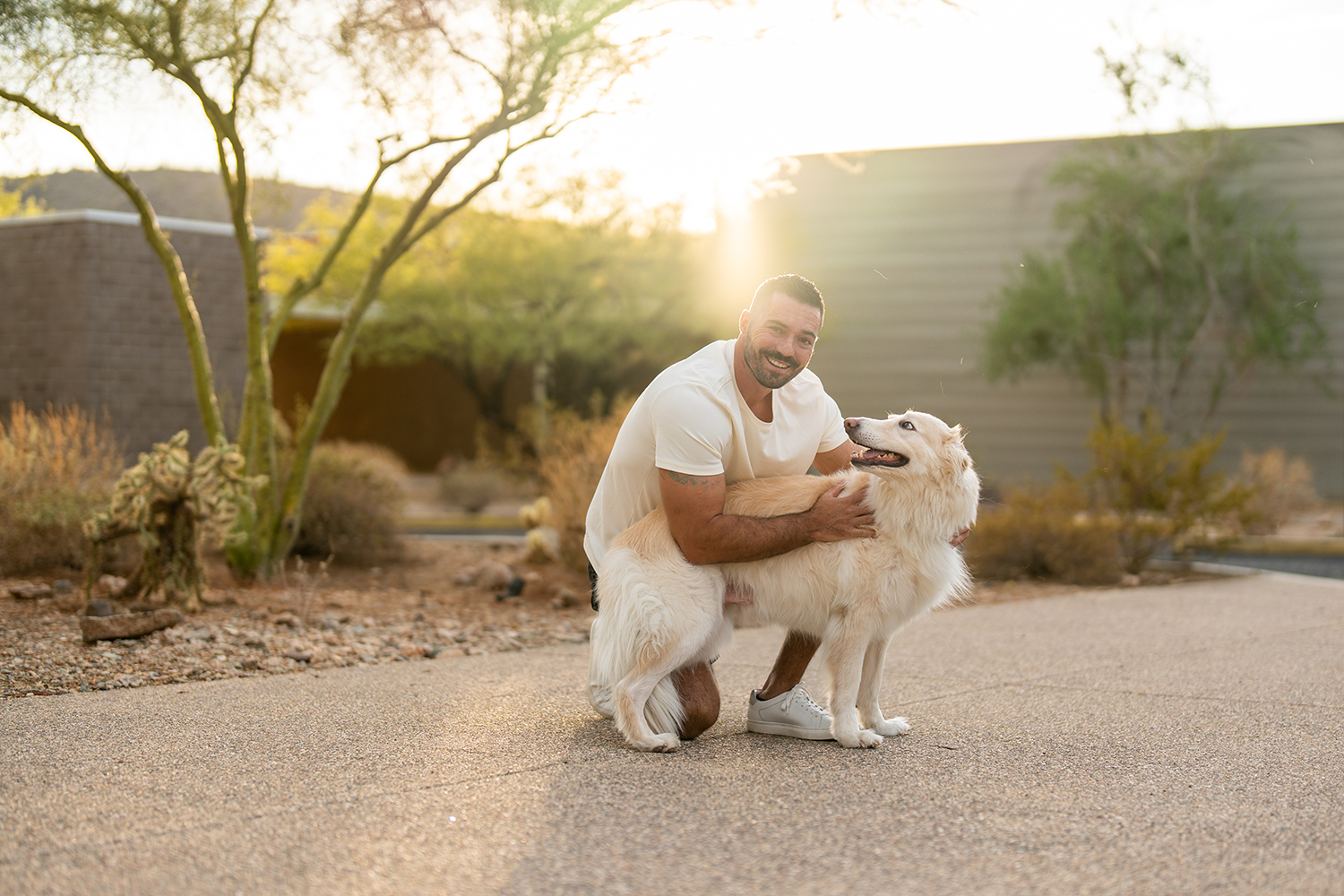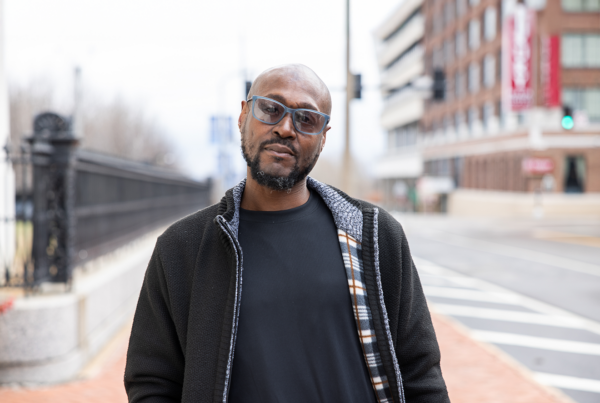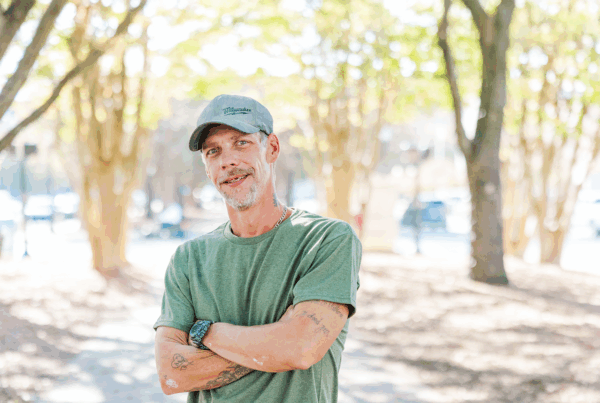The cycle of addiction and incarceration can feel inescapable, a revolving door where the past is always waiting to pull you back in. For Max, a 36-year-old Arizona native, that door had spun twice already. He had been to prison twice, and each time, he returned to a world that seemed to offer more obstacles than opportunities. But after his most recent arrest, a different kind of opportunity arose – one that offered not just a way out of jail, but a path to a completely new life.
“I grew up in sports and had a really good upbringing.”
Growing up in the small town of Cottonwood, Max had a stable and supportive childhood. “I grew up in sports,” he says, “and had a really good upbringing.” His family was a testament to the value of education and hard work; his sister is a doctor and his brother has a master’s degree. Max’s path, however, took a different turn in college when he began experimenting with drugs. This led to his first entanglements with the law, setting him on a course that would define much of his adult life.
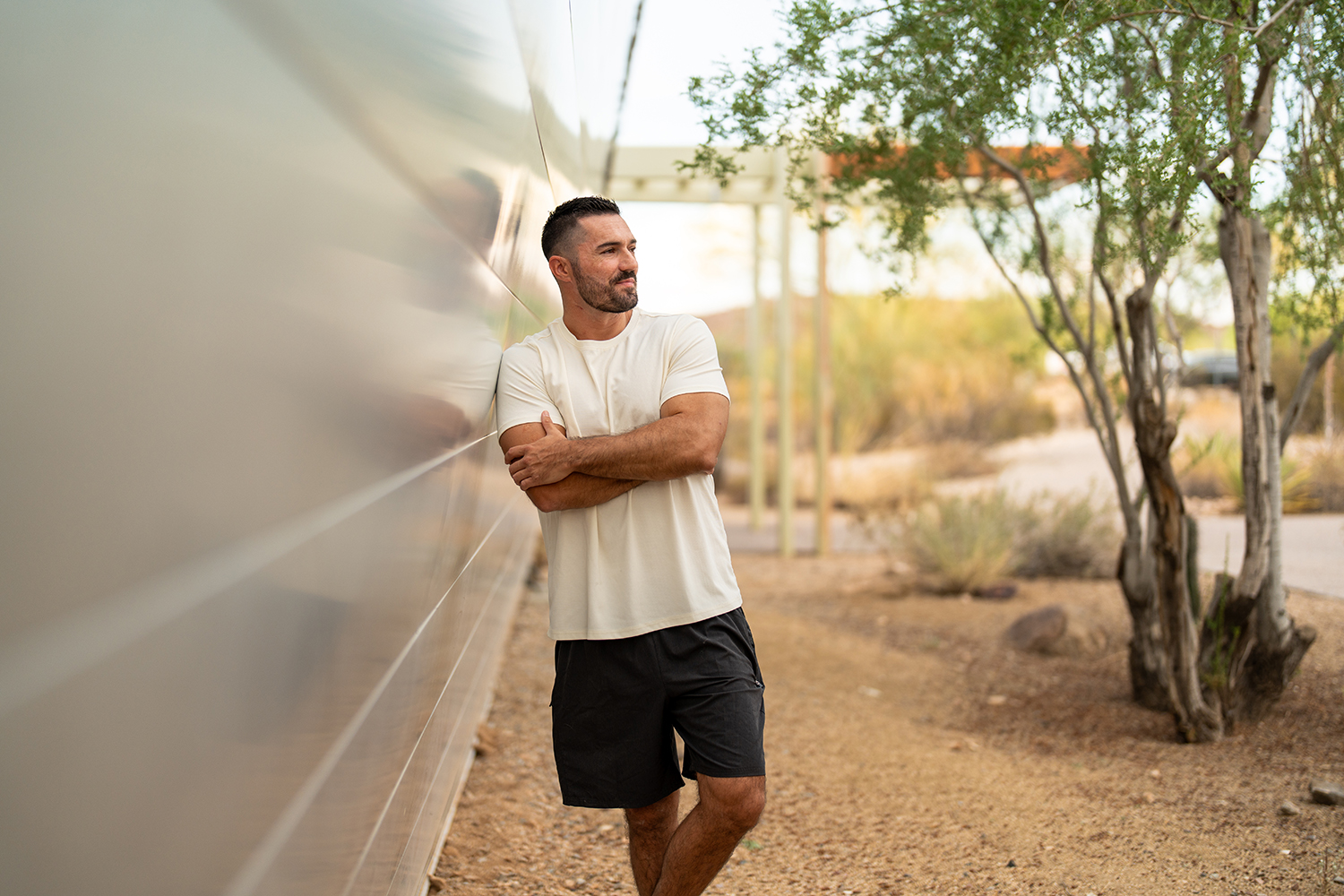
After his second prison stint, Max found a period of stability, staying sober for five years. “When I got out I was doing really well for a couple years,” he recalls. But he eventually relapsed, and a new charge of trafficking stolen property landed him back in jail. Having never been able to afford bail, Max believed his fate was sealed. “I thought I was just absolutely screwed,” he says, certain he was headed back to prison.
Inside the jail, he heard rumors from other inmates about a group called The Bail Project that could help. “I didn’t think it was a real thing,” he admits. “It kind of sounded too good to be true.” A friend on the outside applied for him, and after an interview, Max was granted a chance – The Bail Project paid his $5,000 bond. This simple act of paying bail was the catalyst that would change everything.
Stepping out of jail, Max didn’t just feel free; he felt a profound sense of responsibility and purpose. “Immediately after I got bonded out, I got sober,” he says. He went to rehab, moved into a sober living facility, and began attending AA meetings. The sobriety that had once felt fleeting now had a foundation built on his own choices, not the forced conditions of incarceration.
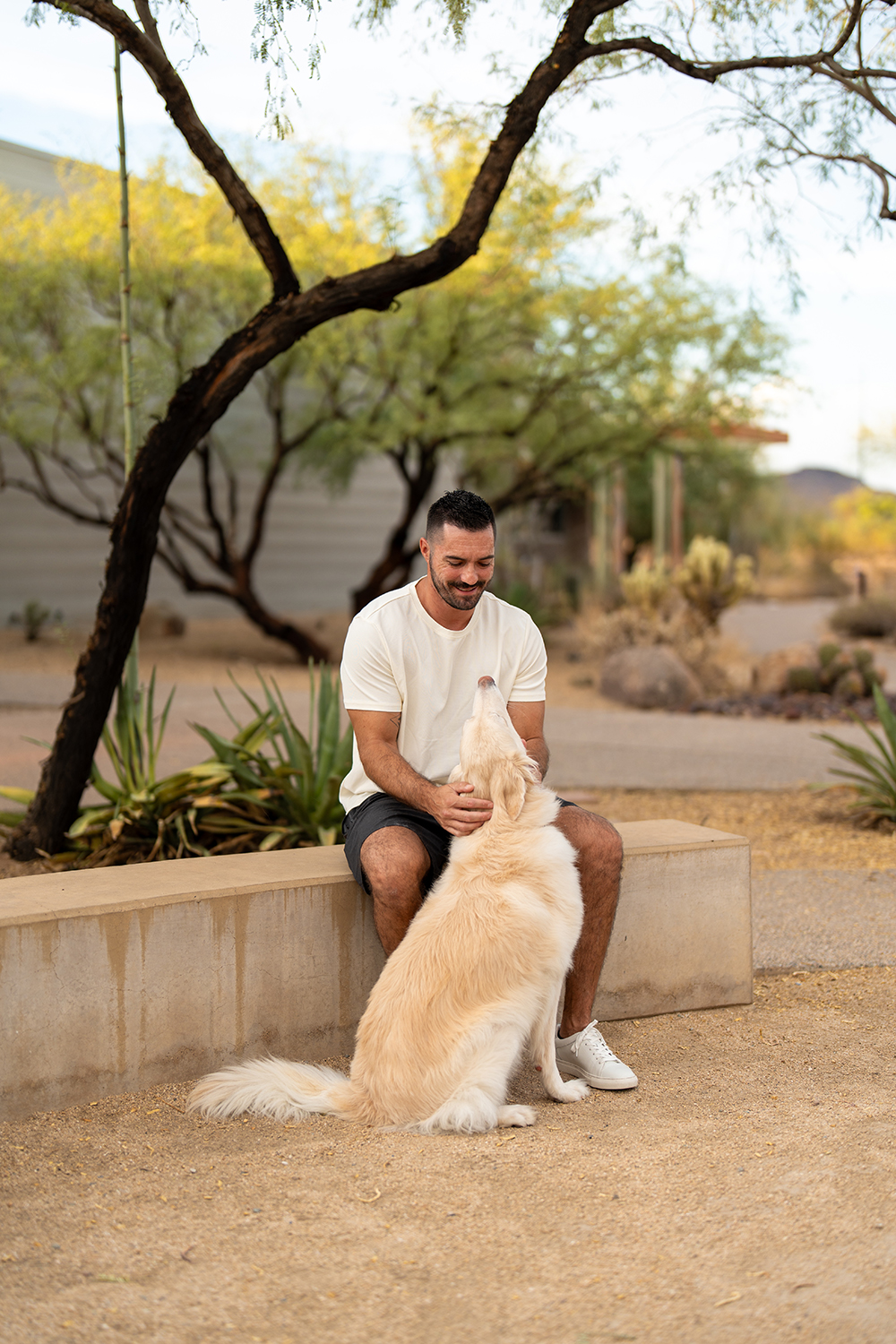
“I think the judge looks at you different because you’re showing up on your own accord.”
Max’s pretrial freedom allowed him to fight his case from a position of strength, not desperation. He believes it fundamentally changed how the judge saw him. “When they see someone coming to court dressed in nice, real clothes instead of orange,” he explains, “I think the judge looks at you different because you’re showing up on your own accord.” He contrasts this with the experience of a person in jail, who is “made to go to court.” His new life allowed him to demonstrate his commitment to recovery. “The judge said that she could tell I was sober every time I came in,” Max remembers with pride.
The story of Max’s recovery is also a story about the challenges facing his community. Max points to the widespread availability of drugs in Arizona. “I think it’s very flooded here,” he says. “It’s extremely accessible.” While he acknowledges that Phoenix has “really good treatment,” he feels the legal system often fails to provide the “off-ramps” that could steer people toward recovery instead of prison. He experienced the lack of resources firsthand during his jail stay. When asked about detoxing in jail, he recalls a harrowing experience, where the only treatment available was “the word,” meaning he had to go through potentially life-threatening withdrawal cold turkey.
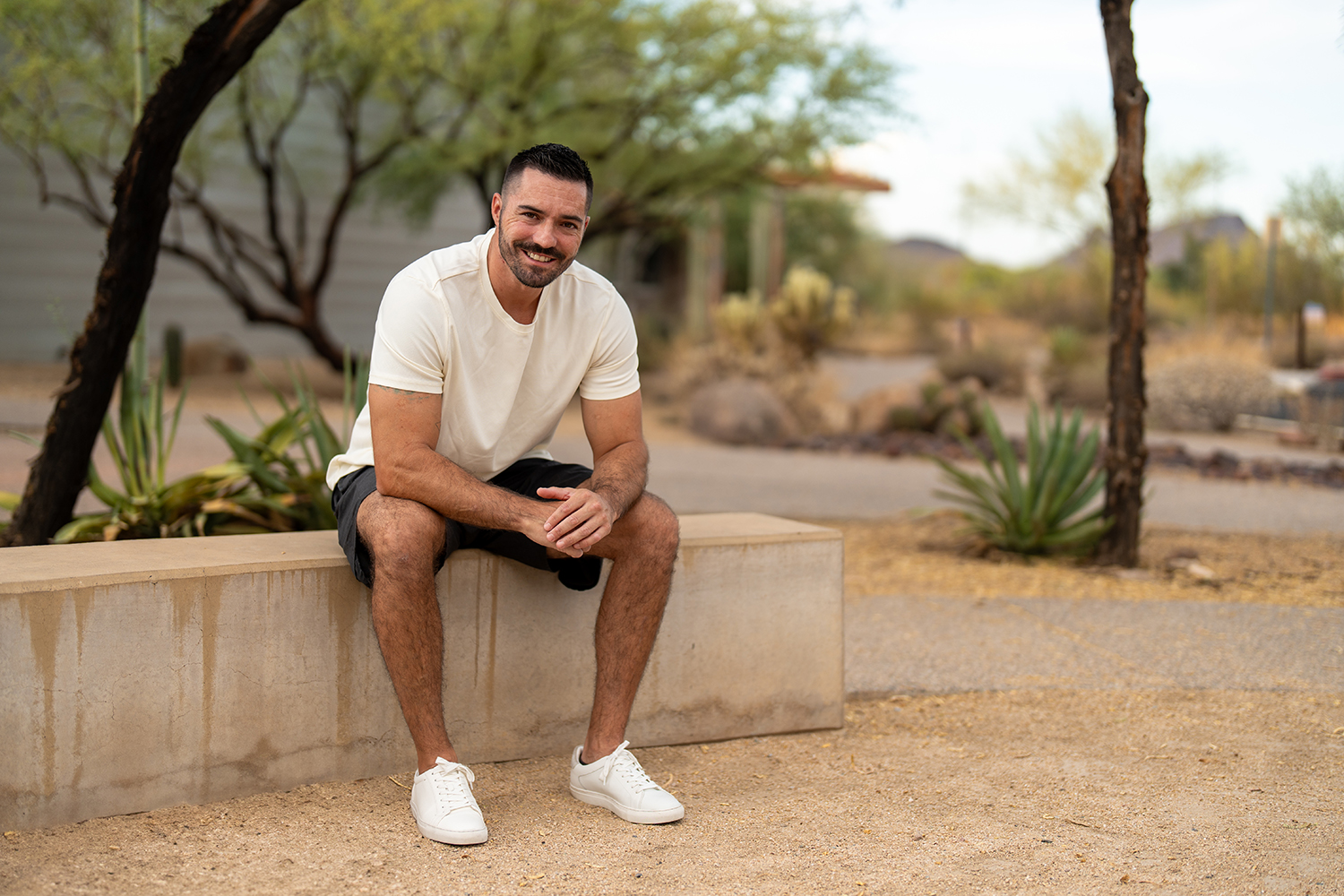
Now, with nearly 17 months of sobriety, Max is a walking testament to the power of a second chance. He shares his story at AA meetings, and the opportunity he was given is something he calls “a true miracle.” He recognizes that being bailed out wasn’t just about escaping jail – it was about getting his life back and building a future he thought was no longer possible. “It was just such a blessing for me,” he says, a sentiment that speaks not only to his own journey, but to the thousands of others who, with a little help, might just find their own path to a new beginning.
“Someone once told me to ‘be the man my dog thinks I am,’ and that has helped me a lot.”
For Max, that path also includes Leo, his dog. “Leo is my emotional support dog for sure – well, he should be at least – because someone once told me to ‘be the man my dog thinks I am,’ and that has helped me a lot,” he says. In caring for Leo, Max has learned what it means to show up for someone else – the quiet, daily work of responsibility – and in that, a reminder of the life he is building now.
Thank you for reading. The Bail Project is a 501(c)(3) nonprofit organization that is only able to provide direct services and sustain systems change work through donations from people like you. If you found value in this article, please consider supporting our work today.







